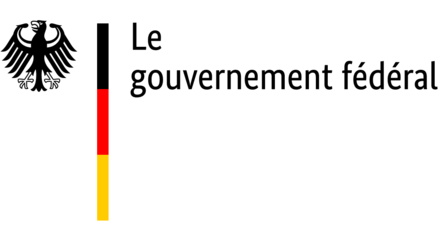
The EU Blue Card in Germany – rising numbers and diverse opportunities
EU Blue Card: popular residence permit among academic staff
29.01.2019 - On 1 August 2012, the Federal Government introduced the EU Blue Card as the residence permit for highly qualified professionals from third countries wishing to live and work in Germany. The Blue Card is issued in line with Section 19a Residence Act (AufenthG), which is based on the Highly Qualified Employment Directive of the European Union1. Applications for an EU Blue Card can only be granted if the applicant has a confirmed job offer for a post that carries a certain minimum salary or more. Since the EU Blue Card came into force in Germany, the number of Cards issued has risen year-on-year (see graph). In 2017 alone, 21,727 Blue Cards were issued – up 25% on the previous year (2016: 17,362). Blue Cards are not only issued for qualified professionals wishing to live and work in Germany, but also for persons from third countries who are already living here. For example, graduates from German universities originating from third countries and wanting to work in Germany can apply for the EU Blue Card in order to change their status. In 2017, around two thirds of EU Blue Cards were issued to persons from third countries already living in Germany. Currently, around 24% of EU Blue Card holders come from India2. Other countries from which large numbers of Blue Card holders originate are China, Russia, Ukraine, Turkey and the USA.
Germany issues the largest share of EU Blue Cards among countries in the European Union – some 84%3. One reason is that there are no other national immigration programmes in Germany that compete with the EU Blue Card. Another reason is Germany's prospering labour market and the lower income thresholds for which the Card is granted in occupations where there is a skills shortage4.
How the EU Blue Card works in Germany
The EU Blue Card scheme is aimed at persons from third countries with particular qualifications that migrate to Germany to take up gainful employment. In order to be issued with an EU Blue Card, applicants must:
- have a qualification from a German higher education institute or a foreign higher education qualification that is recognised in Germany or is comparable with a German qualification and
- who have a confirmed job offer for a post matching their qualification/s with a gross annual salary of at least 53,600 euros (threshold for 2019).
Graduate professionals who work in subject areas linked to occupations where there are skills shortages, such as science, technology, information technology and mathematics, as well as medical doctors, are also eligible to apply for an EU Blue Card of they earn as much as domestic employees in comparable posts. The minimum gross salary that must be earned by these staff currently sits at 41,808 euros (threshold for 2019). In these cases, approval must be obtained from the Federal Employment Agency (BA – Bundesagentur für Arbeit). However, if the higher education degree was acquired in Germany, no such approval is required.
The EU Blue Card is initially issued for a limited period of a maximum of four years. If the duration of the employment contract is less than four years, the EU Blue Card is issued for the duration of the employment contract plus three months. After it has expired, the EU Blue Card can under certain conditions be extended or can be converted into a permanent settlement permit, allowing the bearer to reside in Germany indefinitely.
EU Blue Card offers long-term perspectives
The EU Blue Card is designed to promote and facilitate permanent immigration of highly qualified professionals from third countries, especially those in occupations with a skills shortage. The criteria for the issuing of EU Blue Cards are clearly defined and can be understood both by those interested in migrating to Germany and by employers. In this way, the EU Blue Card provides planning security and legal entitlements for both sides5.
One of the advantages of the EU Blue Card is that holders are able to gain a long-term perspective for staying in Germany much earlier than persons in other migrant categories. After just 33 months, they are eligible to apply for a permanent settlement permit if they have been in skilled employment for the length of this period. Applicants able to prove German language skills of B1 level or higher can apply even earlier, after 21 months. In 2017 alone, around 11,000 permanent settlement permits were issued. The largest proportion of these was granted for persons who had previously been EU Blue Card holders (7,809 persons).
Family reunions are also made easier for Blue Card holders. For example, spouses coming to join their husbands or wives who are in Germany are entitled to a residence permit without having to prove their German language skills. In addition, they immediately have unrestricted access to the German labour market.
Sources and notes:
[1] Directive 2009/50/EC on the conditions of entry and residence of third-country nationals for the purposes of highly qualified employment: https://eur-lex.europa.eu/legal-content/EN/ALL/?uri=celex%3A32009L0050 (15 October 2018).
[2] In total, some 43,178 persons from third countries were living in Germany on an EU Blue Card as of 31 March 2018. Source: Federal Office for Migration and Refugees (BAMF)/migration monitoring, 2018.
[3] Source: BAMF / Eurostat 2018: https://www.bamf.de/DE/Themen/Statistik/BlaueKarteEU/blauekarteeu-node.html.
[4] Ifo Schnelldienst 6/2018.
[5] Source: BAMF
Do you have any questions?
Let us advise you on your opportunities to work and live in Germany. Our experts will support you with questions regarding job search, visa, recognition and learning German.
You can find out more about the various contact options by clicking on one of the icons in the bar below.
